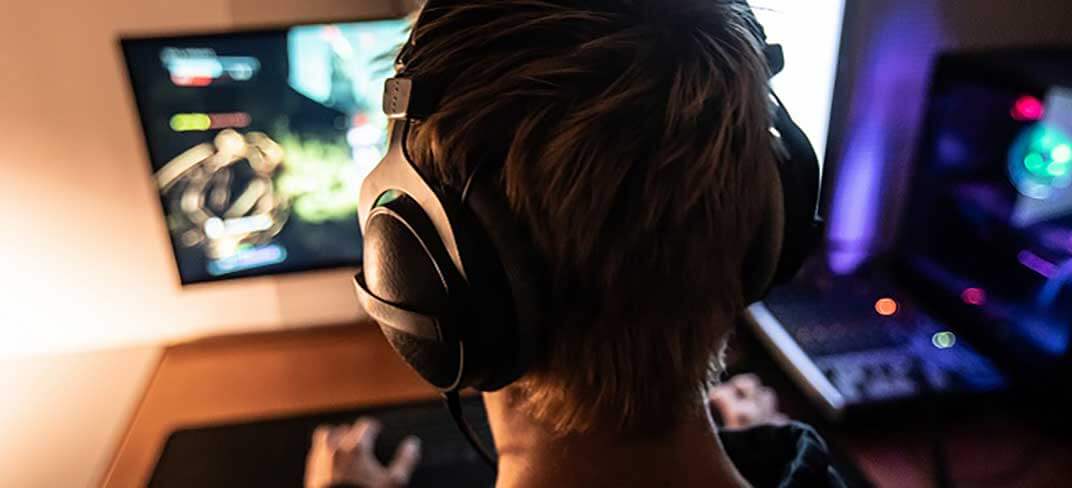Ortho Injuries in Esports: Prevention, Treatment, Return to Gaming

Most esports don’t involve physical activity, but sports-related injuries during training and competitions are still common.
Enhanced fine motor skills are necessary to compete successfully in esports but overuse of the arms, hands, and fingers is leading to orthopaedic injuries among esports players.
While no comprehensive study has been carried out on the Irish gaming population to date, Ireland Esports estimate that there are over 700,000 regular gamers in Ireland. Additionally, the amount of time played increases at the collegiate and professional levels where esports teams can practice up to 12 hours a day.
Common Complaints of Esports Athletes
Alongside eye strain and fatigue, esports athletes experience a range of musculoskeletal injuries. De Quervain’s tenosynovitis or radial styloid tenosynovitis — known as “gamer’s thumb” — is the most common injury among players. Caused by repetitive motion, this painful condition involves inflammation in the tendons on the thumb side of the wrist.
Other common esports injuries include:
- Hand cramps and injuries
- Wrist conditions such ascarpal tunnel syndrome
- Tendonitis in the forearms
- Shoulder stiffness
- Back and neck pain
Primary Causes of Esports Injuries
So, what causes these problems? The American Academy of Orthopaedic Surgeons estimates that up to 40% of competitive gamers are not physically active. That results in a weaker core that can lead to certain musculoskeletal injuries and conditions. Most esports injuries are the result of:
- Overuse
- Muscle weakness
- Poor posture
- Deconditioning
Prevention and Treatment Tips
Preventing these injuries and conditions is always preferable to treating them. Competing at a high level requires repetitive motions that can lead to overuse injuries. Some steps to lessen the chance of getting an esports injury, include:
- Participating in physical exercise and conditioning
- Practicing proper ergonomics and postures
- Taking frequent breaks and not “overdoing it”
If you already have an injury related to esports, the sports medicine physician and orthopaedic surgeons at UPMC Sports Medicine can help. Nonsurgical options for overuse injuries include:
- Rest or activity modifications
- Anti-inflammatory medicines
- Physical therapy or injections
- Ergonomics assessment/correction
- Nutrition consultation
- Stretching exercises
- Wearing a brace
- Ice or elevation
- Exercises to restore endurance/prevent recurrence
If nonsurgical treatments do not help, your consultant may recommend minimally invasive surgery to repair an injury.
After surgery, most patients take part in a rehabilitation or physical/occupational therapy programme to build stamina and restore range of motion.
If you have a concern you think would benefit from a consultation at UPMC Sports Medicine at WIT Arena, make an appointment today by calling 051-376827.